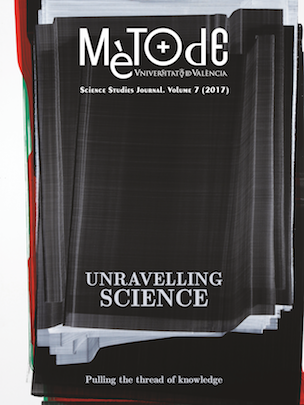Editorial
DOI:
https://doi.org/10.7203/metode.7.10502 Resumen
Resumen
Mètode Science Studies Journal is a rare bird. Its pages want to reconcile the latest advances in research and the review of each particular science; mixes science communication and excellence research. It focuses on the intersection between academic research, scientific essay and science popularisation. As a matter of fact, its readers are not only experts, not even scientists in a broad sense, but anyone who tries to keep abreast of scientific news and wants to reflect on the challenges of contemporary culture. The quality standard awarded by Scopus, as well as other indexes, guarantees that our path – which we walk almost alone, since similar editorial projects are scarce – remains on track. We live in a world where the progress of science and technology goes faster and faster, where the need to reflect on their scope and impact turns more and more decisive every day. This issue of Mètode Science Studies Journal collects essential topics in current scientific research, such as the secrets of neuroscience, the connection between science and ideology, gender issues related to scientific research and violent dynamics in our universe. All in all, Mètode Science Studies Journal delves on the great problems of current research from its characteristic transversality, together with the contributions of artists to provide the last touch of beauty and exclusivity.
Martí Domínguez. Editor-in-Chief of Mètode SSJ. University of Valencia (Spain).
 Descargas
Descargas
Descargas
Publicado
Cómo citar
-
Resumen429
-
PDF 222
Número
Sección
Licencia
![]()
Todos los documentos incluidos en OJS son de acceso libre y propiedad de sus autores.
Los autores que publican en esta revista están de acuerdo con los siguientes términos:
- Los autores conservan los derechos de autor y garantizan a Metode Science Studies Journal el derecho a la primera publicación del trabajo, licenciado bajo una licencia de Creative Commons Reconocimiento-NoComercial-SinObraDerivada 4.0 Internacional, que permite a otros compartir el trabajo con un reconocimiento de la autoría del trabajo y citando la publicación inicial en esta revista.
- Se permite y se anima a los autores a difundir sus trabajos electrónicamente a través de páginas personales e institucionales (repositorios institucionales, páginas web personales o perfiles a redes profesionales o académicas) una vez publicado el trabajo.





